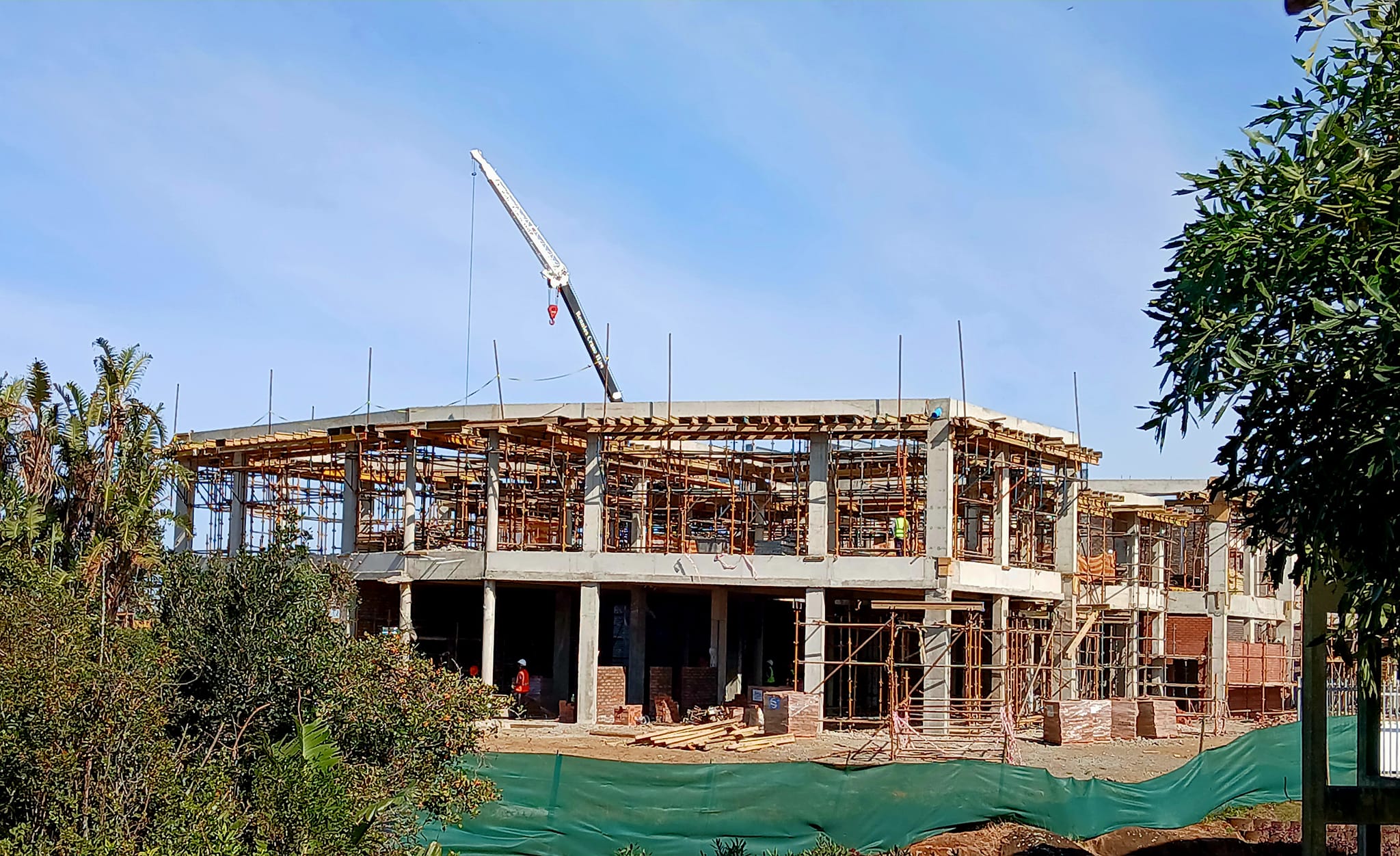EVIDENCE APLENTY AS VICE-CHANCELLOR TRANSFORMS WSU FOR THE BETTER

As one of the institution’s top-rated National Research Foundation (NRF) researchers, Walter Sisulu University (WSU) Vice-Chancellor and Principal, Prof Rushiella Songca has been exemplary and inspirational in leading the university’s academic transformation project from the front.
Following her assumption of duties as the VC in April 2021, Songca, an NRF-C3-rated researcher with over 30 years of academic experience, has made bold and significant strides in enhancing the quality and impact of the university’s teaching and learning project, improving its research output, and deepening community engagement to create more impactful relations.
The academic project…
One of the key aspects to improving the teaching and learning project has been the recruitment and subsequent filling of critical posts, an exercise that saw the university recently appointing highly-decorated academic, Prof Margaret Joan Linington, as Deputy Vice-Chancellor for Teaching and Learning.
Under Songca’s leadership, WSU also recently completed the appointment of seven executive deans, whilst recruitment is underway for deputy executive deans for the same faculties. A significant number of departmental heads have also been appointed to the various academic departments.
Another critical component of improving teaching and learning, which the VC has been front and center of, is the empowering and encouragement of staff, through various interventions like the University Capacity Development Grant (UCDG), which is a Department of Higher Education (DHET) instrument designed for staff development, student support and development and programme development in South African universities.
A myriad of other strategies were employed in a bid to assist students, and these included Student Tracking and Monitoring, student writing and academic support, the First-Year Experience Project, as well as the use of Tutors and Peer-Assisted Learning Programmes.
“The university spends a lot of money courtesy of the UCDG programme to come up with strategies and interventions to assist our students with their academics. However, we need to monitor and evaluate the impact that these efforts so that we can account for the grant money we spend on these interventions. We can’t just spend without seeing the impact,” said Songca.
Through such interventions, WSU’s academic staff qualification profile has been enhanced exponentially, most notably, with the obtaining of PhDs incrementally rising from 164 in 2021 (when the VC arrived) to 224 in 2024. Meanwhile, the Masters degrees have risen, since 2021, from 309 to 360.
The building, maintenance, and renovation of infrastructure…
Through the use of untapped infrastructure grants awarded to the university by the Department of Higher Education and Training in previous years, Songca launched an aggressive campaign to restore the dignity of its students through the building, renovation, and maintenance of new and pre-existing infrastructure that includes residences, computer labs, lecture halls, auditoriums, offices, and libraries, among others.
The aforementioned projects include:
- The building of the marine biology lab at NMD Site, Mthatha Campus
- Renovations of the East Teaching Mall at NMD Site, Mthatha Campus
- Refurbishment of KTC and KGB residences in Mthatha
- Renovations of the Zamukulungisa (ZMK) Site residence in the Mthatha Campus
- Building and completion of the ZMK lecture venues
- Building and completion of the ZMK IT Hub
- Building and completion of Ibika Lecture venues
- Building of the Buffalo City Campus Engineering building
- Refurbishment of KTC and KGB residences in Mthatha
“As an upcoming academic and manager traveling overseas for leadership training, one of the things I will never forget being taught was that one should never forget to maintain infrastructure because when you neglect it and later want to renovate, you’ll end up paying more than what it would cost to construct a new building.”
"As a university, we had a very difficult task of renovating rotting infrastructure, and building new infrastructure, all to restore dignity to the plight of our students through the use of the legacy grant money previously given to us by DHET in years gone by,” said Songca.
Research output…
WSU, under the keen eye of the VC, has experienced astronomical growth in output regarding its total research subsidy units owing to a multitude of interventions and strategies.
A plethora of tactics have been used to achieve the aforementioned growth, and these include the organizing of academic writing retreats for preparation of manuscripts; the increased recruitment and employment of post-doctoral research fellows; the recruitment and hiring of research fellows; the encouraging and subsequent financial support for academics interested in attending research conferences; the establishment of an in-house research conference to inculcate a research culture; establishing research niche areas that encourage the multi-interdisciplinary research approaches.
In 2021, at the arrival of Songca, the total output sat at a low of 192.23, before it jumped staggeringly to 325.81.76 total output at the end of 2023.
“Though we are making strides, it’s not nearly enough because we need to be producing these numbers at a faculty level because we have the capacity in terms of numbers to double these numbers in the coming years,” she said.
Songca however was quick to point to point out the fundamental challenge of facing the university’s research endeavours, which she identified as too few researchers carrying the bulk of the load in terms of research output.
The number of NRF-rated researchers has also doubled at the university, catapulting from 18 researchers in 2021 to 36 by the end of the first half of the year 2024.
By Thando Cezula
